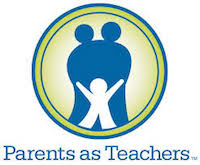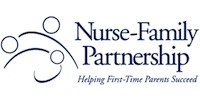Blog Archives
Maricopa County
Parents As Teachers
 A Parent is a Child’s First Teacher
A Parent is a Child’s First Teacher
Your children have so much potential. As a parent, you have a unique opportunity to be their first teacher. That’s because most brain development occurs in the first few years of life, and you can make a difference. Parents As Teachers will show you how. Our Home Visitors will provide you with resources appropriate for your child’s stage of development. Through Parents As Teachers, you’ll develop a stronger relationship with your child and help prepare them for academic success.
Parents as Teachers is a free program for all parents with children younger than 5 years old. Learn how to effectively and meaningfully interact with your child to help them develop intellectually and emotionally and to help you form a deeper relationship and bond with your child.
Benefits of Parents As Teachers:
- This program is evidence-based and proven to work.
- Children who feel safe, healthy, and cared for can thrive.
- We’ll catch possible developmental challenges early on.
- We’ll connect you with a variety of community resources.
- Fun activities will deepen your relationship with your child.
Eligibility Requirements of Parents As Teachers:
- All parents-to-be and parents with children younger than 5 years old.
Nurse-Family Partnership
 Parenting Help from Healthcare Professionals
Parenting Help from Healthcare Professionals
Children don’t come with an instructional guide. So it’s only normal that new parents face challenges and doubt. In times like these, someone is here to help you. Nurse-Family Partnership is a community healthcare program that will connect you with a nurse home visitor. Through the visits, you will learn how you can best care for your child. Our goal is to help you become confident and assured in your parenting skills, so you and your child can look forward to a better future.
Nurse-Family Partnership is a free, evidence-based program designed to help pregnant women become successful, self-reliant parents. Our home visitor nurses start working with first-time parents while they are pregnant to prepare them for the challenges and the joys of parenthood. We help you develop new skills and feel confident in taking care of your child’s physical and emotional needs.
Benefits of Nurse-Family Partnership:
- This is an evidence-based program proven to work.
- We provide you with a variety of free educational resources.
- We build on the parenting skills you already have to help you become self-reliant.
Eligibility Requirements for the Nurse-Family Partnership:
- Prenatal first-time parents less than 28 weeks pregnant.
- Not enrolled in any other home visiting program.
- Income-based requirements based on household size.
Early Head Start
 Help for Low-Income Pregnant People and Children (age birth to five)
Help for Low-Income Pregnant People and Children (age birth to five)
Head Start (for children 3-5) and Early Head Start (pregnant women and children 0-3) has a variety of program and service delivery options including Center Base, Home-Base, Combination (Home & Center) or Family Child Care. Each program incorporates an individualized approach to high-quality services for low-income pregnant women and children age birth to five. Families receive support and guidance from Head Start staff to become self-sufficient.
We understand how challenging it can be to be a parent. Early Head Start is a free parenting program that helps low-income parents and their children with home visits, education, and health screenings. Early Head Start can also help children who are in foster care, children experiencing homelessness, and children with a disability. We offer resources for pregnant women and help for new parents.
Benefits of Early Head Start:
- home visits
- child development education
- health screening and follow-up care
- parenting guidance and education
- services for special needs children
Eligibility requirements of Early Head Start:
- Children between the ages of 0-5 of families that meet the federal poverty guidelines and pregnant women who meet the federal poverty guidelines
- Children who are foster children
- Children who are homeless
- Children who are disabled (have IFSP or IEP)*
